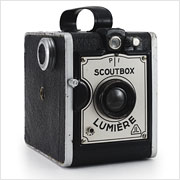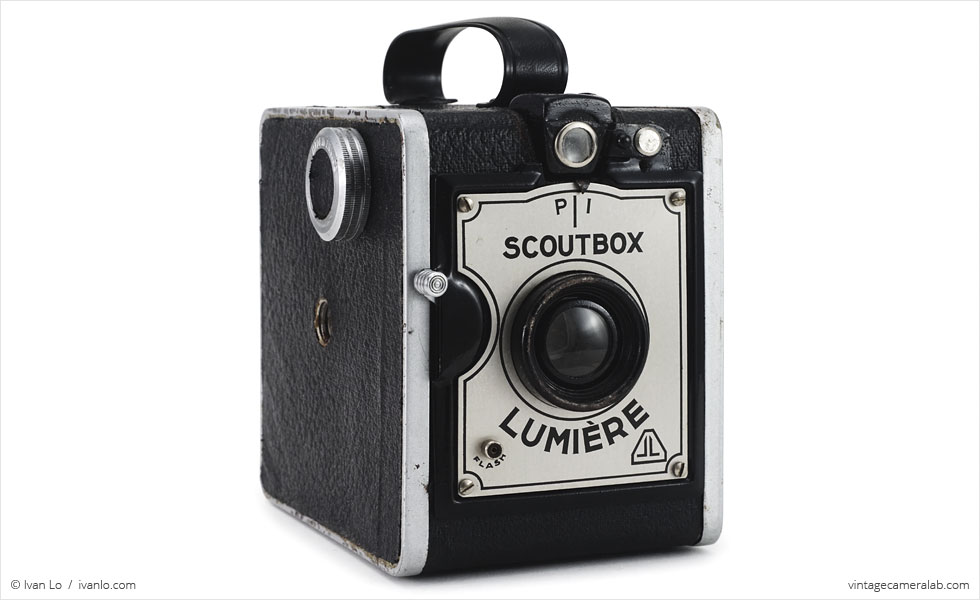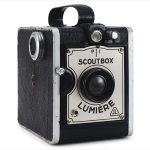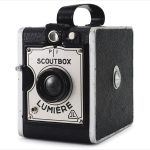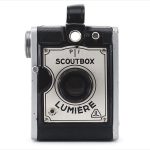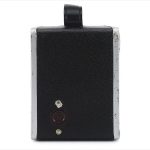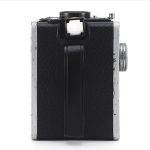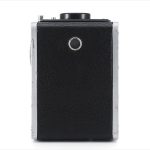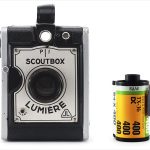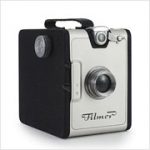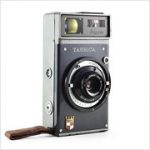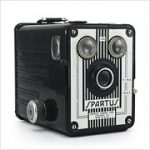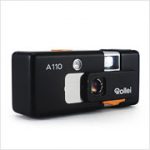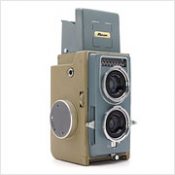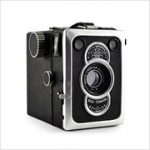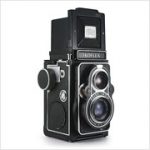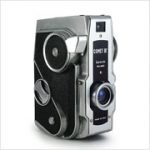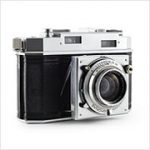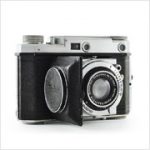Lumière Scoutbox Specifications
| Manufacturer: | Lumière et Compagnie |
| Origin: | France |
| Made in: | Lyon, France |
| Introduced: | 1951 |
| Type: | Box, Viewfinder |
| Format: | 120 Film |
| Dimensions: | 7.8 x 9.8 x 10.6 cm |
Lumière Scoutbox Overview
The Lumière Scoutbox is the model name used by French manufacturer Lumière et Compagnie for a number of similar box cameras designed for 120 film from the early 1930s until the early 1950s. This particular version—which was introduced in 1951—is one of the last cameras to bear this name.
Some of the early models featured two brilliant finders like those found on the Marksman Six-20 or Ansco Shur-Shot (one for portrait-oriented and one for landscape-oriented photos) and also have three shutter speed options: Pause (more commonly known as Bulb, when the shutter stays open for as long as the shutter button is depressed), Time (one press of the shutter opens it, the second press closes it), and Instant (approximately 1/60th of a second). This particular version, however, has a single brilliant finder in the middle which can be rotated as needed and only has Pause and Instant which can be selected using the tiny metal tab between the viewfinder and the fixed-focus lens. Adjacent to the lens at the ten o’clock mark is the shutter button and a flash synchronization post can be located at seven o’clock.
The film advance knob is found on the user’s right hand side just above a 3/8 inch tripod socket designed for landscape-oriented photos. On the user’s left hand side is the latch that allows the right hand side of the camera to be pulled apart for loading and unloading film. A carrying handle is on the top plate and another 3/8 inch tripod socket is on the bottom. The back plate of the camera is home to a red window that should have a rotating metal cover but it’s missing on mine.
I acquired this Lumière Scoutbox not because I was actively looking for one (I was, however, looking for French cameras in general), but because it just happened to be bundled with an early model Fototecnica Filmor (which I was actively looking for) that I bought on eBay. The two cameras were introduced at roughly the same time and are eerily similar in appearance despite being from two different manufacturers in two different countries. As far as I can tell, there are no known links between the two cameras but their similarities are difficult to ignore.
Find your very own Lumière Scoutbox on eBay.
McKeown, James M. and Joan C. McKeown’s Price Guide to Antique and Classic Cameras, 2001-2002. (Grantsburg, WI, USA: Centennial Photo Service, 2001), p 442.
